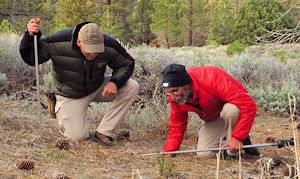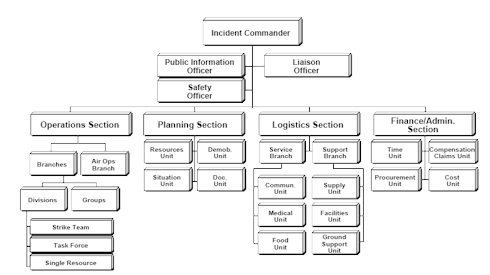Team members undergo frequent training in many different rescue situations in order to keep our skills fresh. Our county has such a wide variety of terrain and weather that we must be prepared to do it all. Members are trained in:
- Basic Candidate Training is required to join the Team as a new Candidate. This all day class includes:
- The Team - History of the Team, What We Do, Why We Do It, Authority To Operate, Readiness, Officers and Team Management, Team Policies, Acceptable Behavior, What Is Expected Of You As A Team Member, Money Matters And How We Are Funded, Insurance
- Training - Objectives of Training, Candidate Training Expectations, Our Building and Equipment, Team Vehicle Use And Procedures
- Operations - The Phases Of A SAR Event, Understanding Search vs. Rescue, How Operations Are Organized, Who Provides Directions, Team Member's Responsibility, What The Operations Leader Expects Of You, What You Expect Of The Operations Leader, What Happens On A Typical Mission (Call Out), Safety, Your Choices, Working With Familys At The Scene, Callout Procedures
- Resources - Helicopter Resources and Safety, Your Ready Pack, Search Strategy, Hiker Capabilities, Incident Command System Operation Management, Radio Communications
- Basic Litter Skills - Carrying A Litter On Your Pack, Assembling The Litter, Packaging The Victim, Extracting The Victim
Some of the above training is introductory in nature and is expanded on in later training sessions.
-
Emergency Medical Care

- Radio Communications
- Tracking skills
- Search strategy and management
- Navigation Skills - Finding Your Way
- Helicopters in Mountain Search and Rescue
- Technical Rescue - knots, anchors, low-steep-high angle rigging
- Backcountry Skills - The Team doesn't train camping, hiking, backpacking skills, however, new Candidates must already have at least a basic level of these skills to be considered for membership. During a Candidates six month training period these skills are evaluated by the Team. To be considered for advancement to Rescue Member, the Canidate must be deemed capable of performing safely in the backcountry during operations.
-
Incident Command System (ICS) - MONO SAR Team members are required to complete the free ICS 100 and ICS 200 on-line courses provided by the Federal Emergency Management Agency (FEMA). More information about ICS can be found at this Wikipedia Incident Command System article.
ICS consists of Five Functional Categories:- Incident command. Authority and responsibility. Usually assigned to a Sheriff Officer SAR Coordinator.
- Operations. The SAR Coordinator designates a qualified Team Rescue Member as Team Operations Leader.
- Planning. Define search areas, strategies, goals, etc. Done by Operations Leader, Incident Commander (IC) and other base personnel.
- Logistics. Equipment, food, supplies, communications, etc. Done as needed by any Team member.
- Finance/administration. Keeping track of expeses, how to pay for what is needed. Not a Team responsibility other than reporting.
More details are provided in the Basic Candidate Training class. - MedWild - Wilderness Medicine, Survival, Rescue - A series of 69 short video's about search and rescue, survival techniques, and more. Be sure to scroll down the screen and click on "Load More" to see all of the available video's.
- Avalanche Safety - Search & Rescue
- Search Dogs
- Lake Ice rescue
- Ice Climbing
- Swift water rescue
- Ski mountaineering
- Snow Anchors, Snowfield Travel, Self-Arrest
- Winter travel and survival
Complete training requirements are listed here, in the Team Policies.
A number of articles on subjects like Minimum Impact, Lyme Disease, Bears, Warmth, Lightning and other general outdoor living and safety information will be found on the Outdoor Safety page.
The following sites contain useful SAR information:
- Mountain Rescue Training Programs - Mountain Rescue Association site offers a number of training documents in .pdf format which you can download
